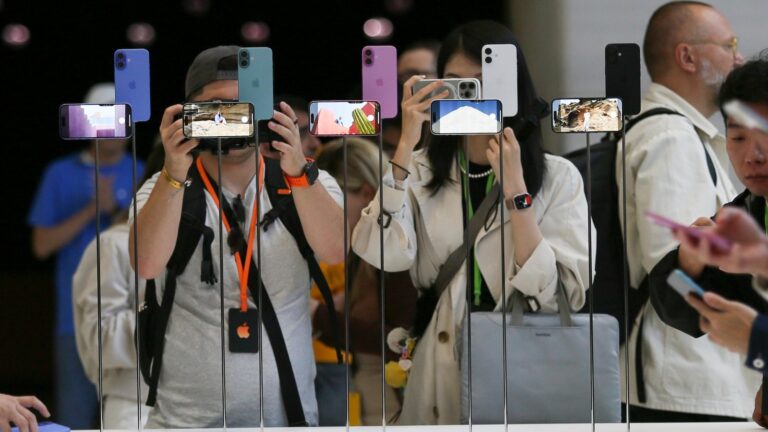Apple is giving more people the chance to test a software update that builds artificial intelligence into its virtual assistant, Siri, and automates a variety of tedious tasks with its latest iPhones, which go on sale Friday.
The free update was made available Thursday to users who signed up to test Apple’s software before it’s released to all iPhone owners next month. As of Thursday, only two of last year’s premium iPhones had the enhanced processors needed to run the AI features included in the update, but that will change on Friday when four new iPhone 16 models hit store shelves.
All iPhone 16 models, priced between $800 and $1,200, are compatible with new technology that the company is marketing as “Apple Intelligence,” a branding change that’s part of an effort to distinguish the iPhone’s AI from similar tech already available in smartphones released by Samsung and Google earlier this year.
AI features are being touted as one of the main reasons to buy the iPhone 16, so releasing a test version of the software behind the tech now could encourage more consumers to buy the new model as soon as possible.
The AI technology is available only in U.S. English for now, with plans to expand to localized English in Australia, Canada, New Zealand, South Africa and the U.K. in December. Apple plans to expand to other languages and countries next year. Testing of the AI software began just days after Apple released its latest mobile operating system, iOS 18, to all of the company’s early iPhones.
Once the iOS 18.1 upgrade is installed, the always-clumsy Siri will become more conversational, capable and colorful, with lights spinning on your iPhone’s screen as it responds to requests. Apple promises that Siri will be able to perform more tasks and become less confusing, but it won’t be able to interact with other apps installed on your iPhone until another software update is released at a yet-to-be-specified date.
Other AI features included in the software update handle a variety of writing and proofreading tasks, summarize the content of emails and other documents, and provide a range of editing tools to change the look of your photos and make finding old photos easier.
But the initial update doesn’t include other upcoming AI tricks, like the ability to create customized emojis on the fly or conjure up other fanciful images upon request. Apple also plans to eventually allow its AI suite to enlist the help of OpenAI’s ChatGPT when users want it.
In addition to the new iPhone models, Apple’s AI features will also work on last year’s iPhone 15 Pro and iPhone 15 Pro Max, which have the special computer chip required. The update also adds the ability for those two iPhone 15 models to record spatial video, which can then be viewed on Apple’s $3,500 Vision Pro headset.
But the AI doesn’t work on the hundreds of millions of other iPhones still in use — a shortcoming that investors hope will help boost sales of Apple’s popular device, which have recently been slumping.
That expectation is a key reason why Apple’s stock price has risen more than 15% and shareholder wealth has reached $500 billion since the company unveiled its AI strategy in June. Some analysts believe demand for new iPhones could push Apple’s market capitalization past $4 trillion for the first time within the next 12 months.

